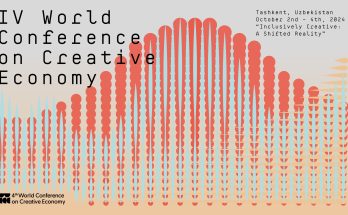 There is a thin line between artistic freedom and abusive outpourings. Lampoon or mock, by all means, but do not lapse into demeaning language against nationally and historically venerated figures like Mahatma Gandhi. This is the message from India’s Supreme Court, a sobering note amid a raging debate in the country over limits of the poetic license.
There is a thin line between artistic freedom and abusive outpourings. Lampoon or mock, by all means, but do not lapse into demeaning language against nationally and historically venerated figures like Mahatma Gandhi. This is the message from India’s Supreme Court, a sobering note amid a raging debate in the country over limits of the poetic license.
While allowing for the freedom to ideate, the country’s top court pointed out: “You cannot use abusive words for historical figures under the garb of artistic freedom. There is a complete freedom for ideas but the freedom of speech and expression is not absolute. The Constitution provides restrictions and it is a regulated freedom.”
In recent judgment, a bench comprising Justices Dipak Misra and Prafulla C. Pant, underlined that it was no offence to criticise, mock, lampoon and make parodies of the country’s iconic figures, but the freedom of expression cannot be stretched to demeaning them (by the use of abusive language). The same is an offence under Section 292 of Indian Penal Code, attracting a maximum jail term of two years.
The court’s directive was in response to a petition filed by a publisher who had published a poem on Mahatma Gandhi in 1984. The poem, ‘Gandhi Mala Bhetla Hota’ (I met Gandhi), written by Vasant Dattatray Gurjar, a Marathi poet, depicts the Mahatma as the narrator who uses obscene language in the poem. The bench agreed that the boundaries of freedom of speech has been expanding, but should not mean using abusive words against Mahatma Gandhi, the father of the nation, under Article 19(1) of the Constitution guaranteeing free speech.
“Had it be an ordinary ‘Gandhi’ it would not have been a problem, but using Mohandas Karamchand Gandhi is objectionable. Mahatma is not a mythical or imaginary character who can be abused. This work would not come under artistic freedom and would attract provisions of Section 292,” the bench emphasised.
“You can write satires on Gandhi, lampoon him or criticise him but if you put abusive words in his mouth, then it is not permissible”, the Supreme Court cautioned.
The publisher’s counsel, Gopal Subramaniam, argued that the recent development lays down a proposition, under which the law cannot be applied differently. He said, “Veneration is a personal matter. Constitution does not talk about veneration of historical figures. Time is changing and what was earlier considered abusive has become idiomatic in society. Society should be tolerant”, he said.
Meanwhile, the court has reserved its verdict and it would pass a detailed order on the issue at a later date.
Author Profile
- India Writes Network (www.indiawrites.org) is an emerging think tank and a media-publishing company focused on international affairs & the India Story. Centre for Global India Insights is the research arm of India Writes Network. To subscribe to India and the World, write to editor@indiawrites.org. A venture of TGII Media Private Limited, a leading media, publishing and consultancy company, IWN has carved a niche for balanced and exhaustive reporting and analysis of international affairs. Eminent personalities, politicians, diplomats, authors, strategy gurus and news-makers have contributed to India Writes Network, as also “India and the World,” a magazine focused on global affairs.
Latest entries
 DiplomacyJanuary 5, 2026India walks diplomatic tightrope over US operation in Venezuela
DiplomacyJanuary 5, 2026India walks diplomatic tightrope over US operation in Venezuela India and the WorldNovember 26, 2025G20@20: Africa’s Moment – The Once and Future World Order
India and the WorldNovember 26, 2025G20@20: Africa’s Moment – The Once and Future World Order DiplomacyOctober 4, 2025UNGA Resolution 2758 Must Not Be Distorted, One-China Principle Brooks No Challenge
DiplomacyOctober 4, 2025UNGA Resolution 2758 Must Not Be Distorted, One-China Principle Brooks No Challenge India and the WorldJuly 26, 2025MPs, diplomats laud Operation Sindoor, call for national unity to combat Pakistan-sponsored terror
India and the WorldJuly 26, 2025MPs, diplomats laud Operation Sindoor, call for national unity to combat Pakistan-sponsored terror







